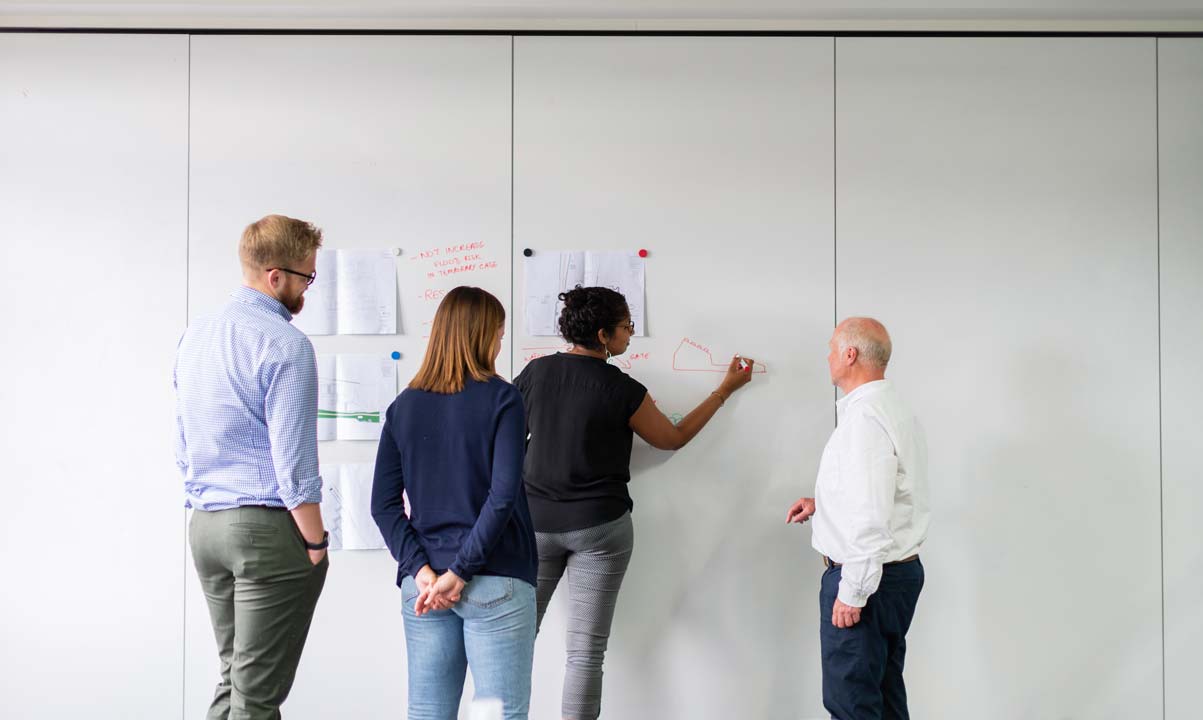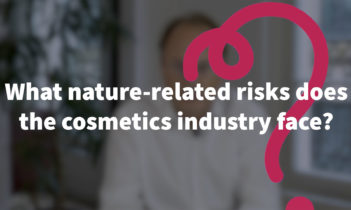
"I believe sustainability consulting will have fulfilled its mission the day it’s no longer needed."
Originally published on Greenbiz.com
Action, innovation and changing the world — this is what I envisioned when I first entered sustainability consulting nearly 10 years ago. I pictured myself working alongside a multitude of clients, guiding the sustainable transformation of their businesses and the transition to a virtuous cycle — helping them shift from environmental degradation to a planetary economy.
Luckily, much of what I imagined is the reality. There are a lot of opportunities in sustainability consulting to make a big impact. That said, there’s a lot I didn’t anticipate or know. And I never thought that one day I would come to hope that my job will become obsolete.
Here are five key things I learned about being a sustainability consultant:
1. It’s all about engagement
Consulting is first, and foremost, about empowering internal teams. Why? Because they’re the key to actually achieving a company’s sustainability goals. My job is to equip teams with the knowledge and tools they need to integrate sustainability into decision-making and bring the strategies to life. Consultants also play a critical role in breaking internal silos, bringing different teams together and translating scientific facts into business concepts. One of my colleagues told me years ago that our job is actually to be translators. This not only requires strong communication and engagement skills, but it also means consultants need to be great listeners in order to understand how best to support these teams in driving meaningful change.
2. Things move fast — really fast
Consulting is an exhilarating world where things move quickly and there’s a lot of variety. But sustainability consulting takes this to another level. The field is still very new and everything is in development — new methodologies, processes, standards and initiatives crop up almost daily. That means consultants need to not only stay on top of what’s going on, but also to be flexible and able to adapt quickly. A willingness to stay curious and keep learning is imperative.
However, while all of these developments are exciting for us, they also mean a lot of uncertainty for our clients to navigate. To support our clients effectively, we have to stay three steps ahead of them at all times, always anticipating what’s to come. We need to go beyond simply staying on top of what’s happening and focus on collaborating extensively with the organizations defining these future standards or methodologies.
3. We don’t do the doing
Unless you’re a consultant specialized in implementation, you’re probably not going to be the one executing the strategies and solutions you provide to clients. While our work is to enable our clients to implement these solutions, equipping them with everything they need from the plans, the milestones, the tools and even support them throughout the change, at the end of the day, we won’t be going to the plants or in the field to make the changes happen. While many consultancies have long term relationships with clients so are still around when the changes happen and get to see it materialize, we aren’t involved in the process. To some, this can be frustrating, and it can feel like you didn’t get to participate in the end of the journey. And if a change doesn’t get implemented, it can feel like we as consultants failed when there are a multitude of reasons why a company might not be able to make shifts to an operations model.
But I try to see this as an opportunity to bring my knowledge and impact to more companies. Implementing an environmental strategy is an iterative process that can take years, if not decades, to achieve. If I was responsible for the implementation phase of these strategies, I wouldn’t be able to bring my skills and knowledge to as many other companies. I see consulting as an opportunity to scale my impact.
4. Sustainability and business must be one
There can be no sustainability transition as long as sustainability isn’t embedded into business strategy. Getting change to happen requires sustainability consultants to go beyond our sustainability expertise. First, we need to be able to speak the language of business so we can help clients understand why sustainable transformation is critical for business continuity. Business acumen is also important for helping us as consultants know what barriers leaders and their teams face in driving change in their organizations. Second, we need to equip sustainability departments to initiate conversations with their CFOs and CEOs. One way to do this is by involving leadership and other departments in the sustainability projects we are leading. For instance, have the CFO participate in environmental-related risk assessments or have the operational teams in the room when creating environmental roadmaps. Getting these stakeholders involved and fostering a sense of ownership over the project and its outcome is the way to make sustainability core to them as well.
5. The sign of our success is our disappearance
I believe sustainability consulting will have fulfilled its mission the day it’s no longer needed. That will happen the day sustainability becomes a cornerstone of business rather than an upsell or a nice to have — the day in the future when companies will have fully internalized the skills and expertise that I bring from the outside. When sustainability is the main objective of each and every department and economic success, performance and competitive edge are done within a mindset of sustainability — that is the day we will have succeeded.
I won’t lie — sustainability consulting isn’t a cakewalk. It can be intense, tiring and sometimes disappointing when clients are resistant to change or the pace of progress is slow. But if you’re energized by the idea of solving difficult challenges, learning something new every day and working hard to help businesses operate within planetary boundaries, then working in sustainability consulting could be your best way to drive impact.
And if we do it right, we might even get an early retirement.
Latest resources

4 nature-related risks facing the cosmetics industry
Quantis' Emmanuel Hembert outlines the nature risks facing the future of the cosmetics industry.

How digitalization is unlocking a new era of sustainability in fashion...
While digitalization alone doesn’t guarantee perfect accuracy, it plays a crucial role in many ways like fostering more meaningful supplier engagement, boosting data quality and...

Why an environmental sustainability strategy without nature is incomplete
Businesses have an essential role to play in reversing the trend of nature loss — and a lot to lose from inaction.

